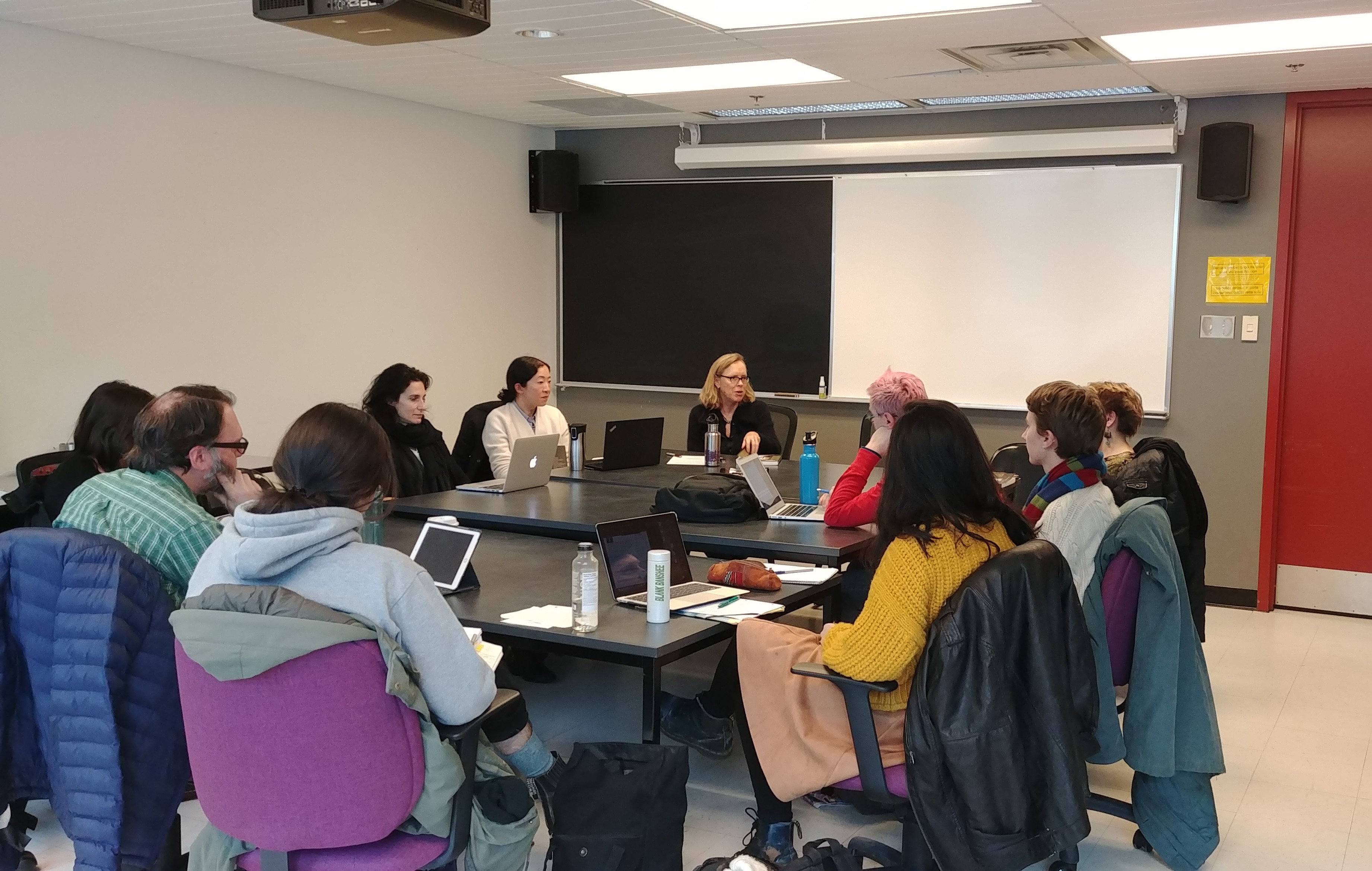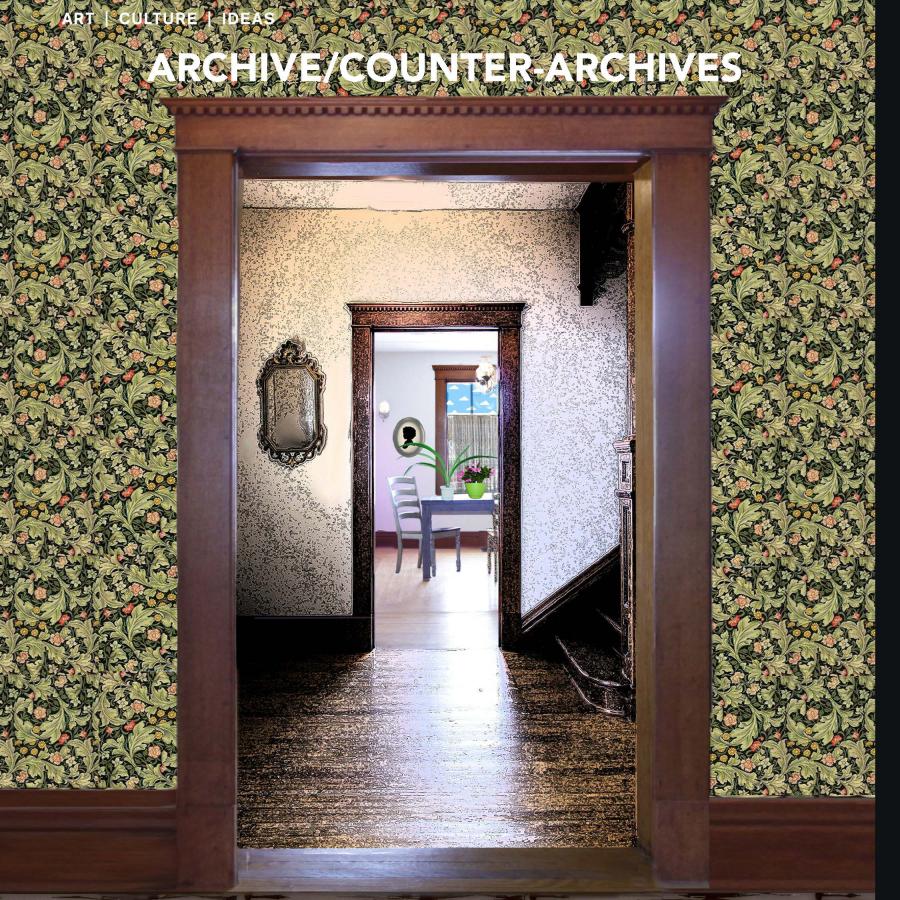Room 407, Faubourg Building, Concordua University
1250 Guy Street
Montreal QC H3H 2T4
Canada
Tuesday, November 12, 2019
2:00 - 4:00 PM
Concordia University, Faubourg Building (FB), Room 407
1250 Guy Street
Montréal, Quebec, Canada H3H 2T4
The Epistemologies of the Archive Working Group will be hosting a single-session reading group at Concordia University on Public’s summer 2018 issue entitled “Archive/Counter-Archives.”
The reading group is open to all who are interested. Please be prepared to discuss the issue in detail.
ARCHIVE/COUNTER-ARCHIVES advances conversations regarding the changing nature and political realities of audio and visual heritage in the twenty-first century. Bringing together artists, archivists, and researchers, this issue of PUBLIC argues that the re-thinking of audio-visual heritage preservation is ultimately strategic and political, especially given the precarious material conditions of archives in the digital era, and the fact that colonial and racialized forms of structural control over the history of place and belonging continue to embargo access to the past for many communities. This issue thus turns towards the transformative potential of counter-archives, which can be political, ingenious, resistant, and community-based. These insurgent archives are embodied differently and have explicit intention to historicize differently, to disrupt conventional national narratives, and to write difference into public accounts. PUBLIC 57 also brings to the fore the work of women and Indigenous, racialized, diasporic, and LGBT2Q+ communities to create counter-archives that expand, interrogate, and disrupt conventional archives and archival methodologies.
Editors: May Chew | Susan Lord | Janine Marchessault
Contributors: Hend F. Alawadhi; Alejandra Bronfman, Maia Dawson, and Gabriela Aceves Sepúlveda; Mark V. Campbell; Danica Evering; Shawna Ferris, Kiera L. Ladner, Danielle Allard, and Micheline Hughes; Blair Fornwald and Barbara Meneley; Benj Gerdes and Lasse Lau; Kate Hennessy and Trudi Lynn Smith; Mél Hogan; Richard Ibghy & Marilou Lemmens; Brett Kashmere; Mary Kidd and Marie Lascu; Adam Lauder; Mary Elizabeth Luka and Brian Lilley; Sabrina Perić; Benjamin P.F. Prus; Juan Carlos Rodríguez; Steph Schem Rogerson; Catherine Russell; Adam Siegel; Danielle Taschereau Mamers; Alanna Thain; Cheryl Thompson; Mark David Turner; Jennifer VanderBurgh
To purchase a copy of the issue in advance of the meeting, please visit Public’s website at: http://www.publicjournal.ca/category/issues/. Please allow time for shipping. Issues cost $24 per copy (shipping included).
The Epistemologies of the Archive Working Group is discussing the status of the film archive within a changing technological and socio-political environment. It is investigating broad-based questions about the history of archival practices and institutions; and about theoretical and sociological implications of these practices and institutions. The team is refining the definition and potential of the concept of counter-archive within the Canadian context, and developing a more conceptual understanding of media archiving practices.
VENUE ACCESSIBILITY:
The room is accessible by elevator from the ground floor of the Faubourg Building (please use elevators on the left for floors 1-5).

Event Report
by Zoë Laks, A/CA Student Researcher
The Archive/Counter-Archive’s Epistemologies of the Archive working group organized and led a reading group on November 12, 2019 at Concordia University on the topic of Public’s 2018 journal issue no. 57, entitled “Archive/Counter-Archives.” Three members of the working group were in attendance: May Chew, the journal’s co-editor, Alanna Thain, a contributor to the issue, and Catherine Russell, also a contributor and the moderator of the reading group. Patrick Keilty from the University of Toronto was also present following his public guest lecture at Concordia the previous evening, along with fourteen additional attendees, mostly comprising graduate students. The reading group took Public’s issue as a point of departure for discussing the potential and the challenges that lie in conceiving of the archive in non-traditional ways, as fluid, dynamic, and anti-hegemonic: as a site of struggle for meaning.
In the two-hour discussion, the group grappled with issues such as the problems of digital data excess and both the deliberate absences and lack of opacity in one’s archived digital presence that result; the challenge of enacting counter-archival practices given archivists’ traditional functions as curators and gatekeepers of knowledge; the archival and counter-archival potential of online platforms such as email databanks and Google and Facebook profiles; and the difficulty of archiving non-texts, including lived community practices and the meta-archiving of physical archive spaces.
The group specifically focused on the local struggles of Patrick Keilty’s lived experiences as an archivist negotiating institutional structures as Archives Director at the University of Toronto's Sexual Representation Collection, the largest university-based collection of pornography in Canada. The discussion coalesced broadly around the problem of how archives might function as a forward-directed methodology, enacting new histories and historiographies through practices that “animate” archives.
One proposed method to go about animating these (counter)archives is to conceive of them as collaborative practices that enable community-building across the likes of researchers, librarians, filmmakers, and artists. The working group and the reading group sought to enact exactly these connections by bringing different voices and perspectives into the continuing conversation on the problems and the possibilities of working with and understanding archives and counter-archives alike.


